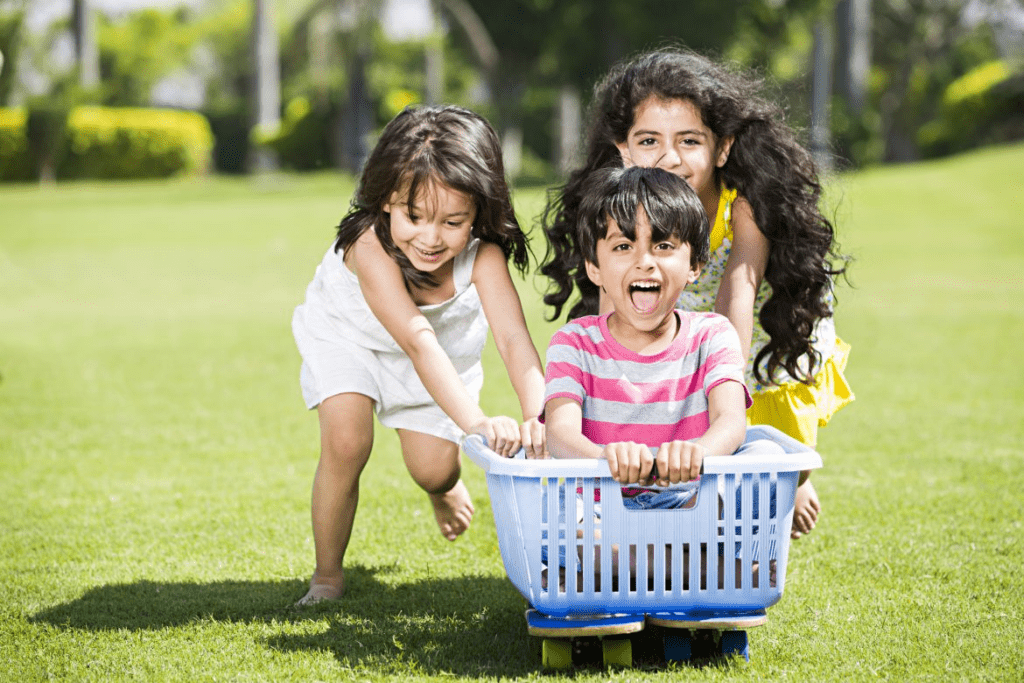
SAFETY AWARENESS FOR EVERY PARENT (SAFE PARENTING)
How we can make our Home and Environment for our Children
Each year, a large number of people succumb to accidents, and almost a third of these are children under 18 years of age. Accidents are also an important cause of serious injuries and disabilities. Fortunately, most accidents and injuries are preventable. By taking simple precautions, parents can make their home and environment safe for their children.
INFANTS AND PRESCHOOLERS
Accidents often occur because we as parents are not aware of how children get into dangerous situations. Children explore everything. This innocent curiosity can lead to major accidents in children. Parents need to take every possible precaution to protect their children from accidents and injuries.
Falls
Parents of children who live in high-rise buildings should take all possible precautions to prevent falls. Never compromise safety for aesthetics. Supervise small children at all times, especially if windows are open. Avoid placing furniture, on which children may climb, near windows or on balconies. Prefer using window grills rather than fixed grills. Remember that windows are an important route of escape in the event of a fire. Discourage or prohibit children from playing on roofs and balconies, especially those that are not adequately fenced. Encourage the use of ground-level safe play areas, such as public parks and playgrounds. Prevent falls from beds by keeping railings on infant beds.
Aspirations and Choking
- Infants cannot chew hard foods well and are at risk for aspirating them i.e. food can go down into the windpipe and choke the child. Foods like nuts should be given only in a crushed form to infants under 3 years.
- Never leave small objects like beads or toys with small removable parts near infants.
Burns
During baths, the temperature of the water should be checked to make sure it is not too hot. During meals, keep infants away from hot foods and drinks. Never carry a baby while drinking hot drinks. Children should not be allowed to play in the kitchen area. Electric irons should always be out of reach of infants. Supervised use of firecrackers is strongly recommended.
Poisonings
Medicines and household products should be always outreach to children, especially those that come with attractive packs or colored solutions with sweet odors. Never use bottles that usually contain edibles e.g. soft drinks or milk bottles to store other chemicals e.g. phenyl or massage oils or kerosene.
Traffic and Road Safety
- Parents need to be reminded of the importance of using seat belts and car seats for infants.
- Never let a child play near a street. They may dart into the traffic without thinking.
- Only children over 8 years should be permitted to cross streets and only after carefully teaching them the basics of traffic safety.
Electrical Shocks and Burns
Electrical sockets should be taped or sealed or plugged.
Drowning
- Parents are advised to never leave infants in the bathtub or near buckets without constant adult supervision.
- Children younger than 5 years old should never swim unsupervised even with floats or guards.
Animal Bites
Pet lovers should be stressed the importance of immunizing their pets. Children should be taught not to tease or have contact with stray animals. School-age children should be taught how to approach and handle pet animals.
SCHOOLCHILDREN:
Parents are often not aware of what their children can do, and children cannot judge what is safe. Fortunately, it takes only a few steps to prevent most accidents.
Traffic safety
- With young children, parents should walk on the pavement facing oncoming traffic.
- A parent should walk how to cross the road: To look right, look left and again right before crossing the road.
- Children should not be allowed to cross roads alone until at least 8 years of age. They do not have an adequate judgment of distances and speeds.
- The use of seat belts should continue to be emphasized.
- Approved bicycle helmets should be worn on every bike ride.
Water safety
- Children 5 years of age and older should be taught to swim and, at the same time, taught appropriate rules for water play. Children must never be allowed to swim alone.
Sports safety
- Children participating in sports programs need to appreciate the importance of physical conditioning as well as safety equipment for that sport. E.g. helmets in cricket or sports goggles for squash.
Sexual Abuse
Sexual abuse can occur at all ages and in both boys and girls.
- Infants and young children must never be left unsupervised.
- Age-appropriate education in older children is important to prevent abuse.
